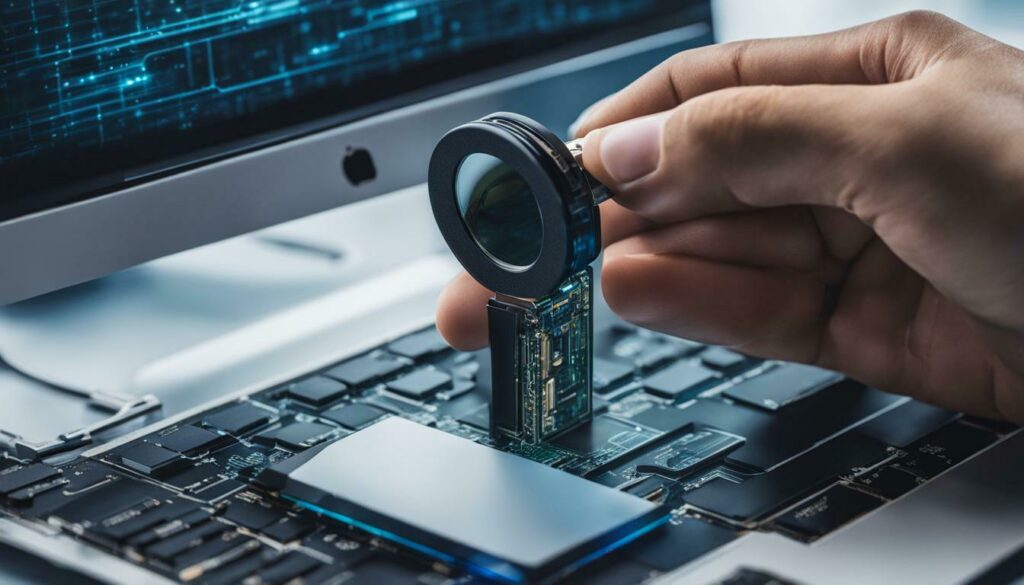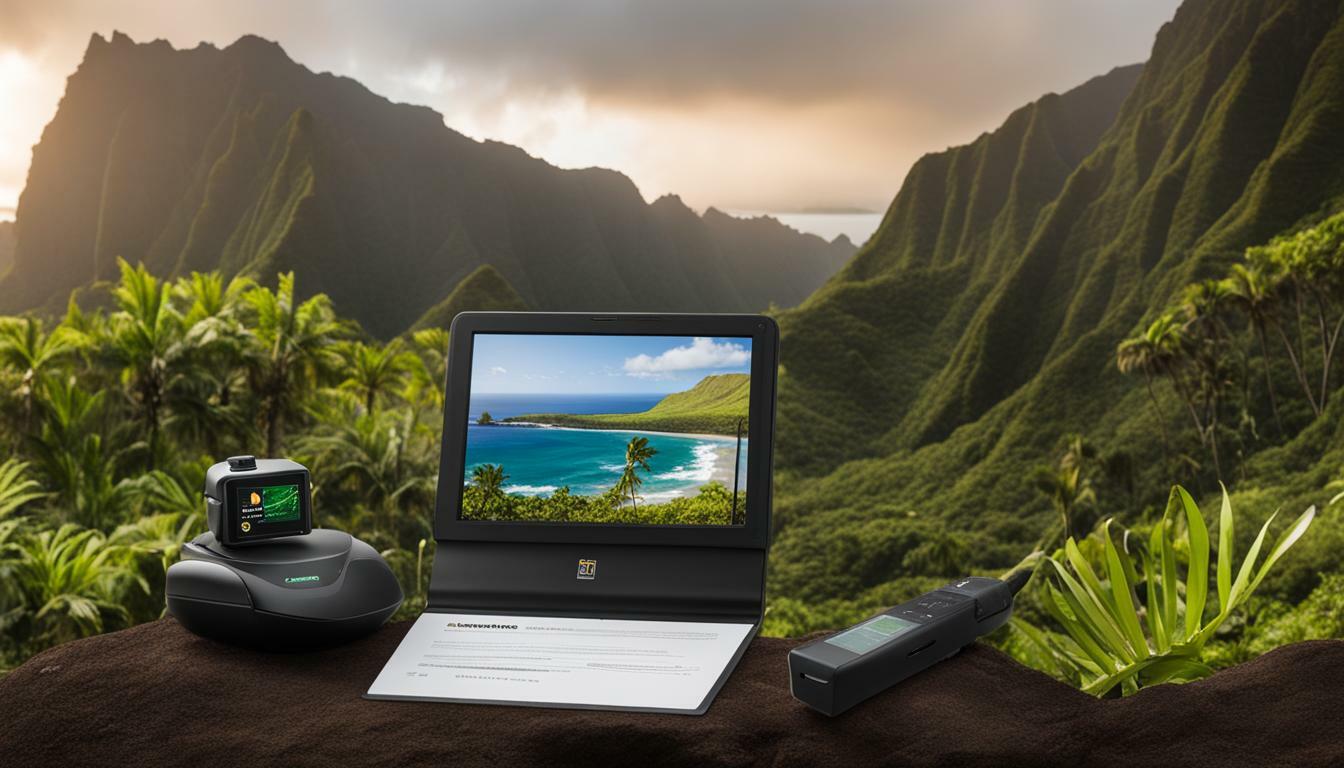Collecting electronic evidence in Hawaii involves understanding the role of subpoenas and their significance in the legal process. Subpoenas play a crucial role in the collection of electronic evidence, allowing parties to obtain relevant data for use in court proceedings. Whether it’s digital forensics or electronic discovery, subpoenas are an essential tool in accessing and preserving electronic evidence in the Hawaii court system.
The Hawaii Rules of Civil Procedure and the Hawaii Rules of Penal Procedure outline the role of subpoenas in collecting electronic evidence. These documents provide guidelines for issuing subpoenas, defining their scope and limitations. Subpoenas can be issued by the clerk of the court and command a person to attend and give testimony or produce documents or other objects.
To ensure compliance with subpoenas, the court may quash or modify them if they are deemed unreasonable or oppressive. This safeguard ensures that subpoenas are fair and do not unduly burden individuals or businesses.
Service of subpoenas can be performed by a police officer or any person over the age of 18, and they can be served anywhere within the state of Hawaii. This flexibility enables parties to access electronic evidence from various sources and locations.
It’s important to note that failure to obey a subpoena may be considered contempt of court, highlighting the seriousness of complying with these legal commands. Adhering to the subpoena process is crucial to ensure the integrity of electronic evidence and its admissibility in court.
Key Takeaways:
- Subpoenas are essential for collecting electronic evidence in the Hawaii court system.
- The Hawaii Rules of Civil Procedure and the Hawaii Rules of Penal Procedure provide guidelines for issuing and enforcing subpoenas.
- Subpoenas can be served by a police officer or any person over the age of 18, anywhere within Hawaii.
- Failing to comply with a subpoena may result in contempt of court.
- Understanding the subpoena process is crucial for effectively collecting electronic evidence in Hawaii.
Understanding the Subpoena Process in Hawaii
To collect electronic evidence in Hawaii, it is crucial to understand the intricacies of the subpoena process and the significance of electronic evidence preservation. Subpoenas play a key role in the legal procedures of Hawaii, allowing parties to obtain relevant information and documents for their cases.
In accordance with the Hawaii Rules of Civil Procedure and the Hawaii Rules of Penal Procedure, a subpoena can be issued by the clerk of the court. It commands a person to attend and give testimony or produce documents or other objects. This is especially important when it comes to collecting electronic evidence, as it can provide crucial information in a wide range of legal cases.
Once a subpoena is issued, it must be served to the relevant parties. In Hawaii, service can be done by a police officer or any person over the age of 18, and it can be served anywhere within the state. It is worth noting that failure to obey a subpoena may be considered contempt of court.
Preservation of Electronic Evidence
When it comes to electronic evidence, preservation is of utmost importance. It ensures that the integrity and authenticity of the evidence are maintained, making it admissible in court. This is particularly important in today’s digital age, where electronic evidence plays a significant role in legal proceedings.
To preserve electronic evidence, it is essential to take appropriate steps to prevent any alterations or deletions. This may involve creating forensic copies of devices, securing and documenting the chain of custody, and utilizing expert digital forensics techniques. By preserving electronic evidence in accordance with Hawaii’s legal requirements, parties can ensure that it remains admissible and reliable in court.
Understanding the subpoena process and the importance of electronic evidence preservation is essential for anyone involved in legal cases in Hawaii. It allows parties to effectively collect electronic evidence and ensures that it is legally admissible in court. By following the proper procedures and utilizing expert guidance, the collection and preservation of electronic evidence can be done seamlessly, contributing to a fair and just legal system in Hawaii.

The admissibility and jurisdiction of electronic evidence play a critical role in Hawaii’s legal system, and understanding these factors is essential when collecting and presenting electronic evidence. The Hawaii Rules of Civil Procedure and the Hawaii Rules of Penal Procedure outline the guidelines for the admissibility and jurisdiction of electronic evidence in the state.
In order for electronic evidence to be admissible in court, it must meet certain criteria. First, it must be relevant to the case at hand, meaning it must have a logical and material connection to the issues being litigated. Second, the authenticity of the electronic evidence must be established, ensuring that it is what it purports to be and has not been tampered with or manipulated. Third, the reliability of the electronic evidence is also a key consideration, taking into account the manner in which it was collected, stored, and preserved.
The jurisdiction of electronic evidence in Hawaii depends on various factors, including where the evidence was obtained and the nature of the case. Electronic evidence can be collected from a wide range of sources, such as computers, mobile devices, social media platforms, and cloud storage. However, the rules regarding jurisdiction may differ depending on whether the evidence was obtained through a search warrant, a subpoena, or voluntary disclosure.
Admissibility and Jurisdiction of Electronic Evidence in Hawaii
When collecting electronic evidence in Hawaii, it is important to follow best practices to ensure its admissibility and maintain its integrity. This includes documenting the chain of custody, using reliable and secure methods for data collection, and working with experienced digital forensics experts who can provide expert testimony on the authenticity and reliability of the evidence.
Overall, understanding the admissibility and jurisdiction of electronic evidence in Hawaii is crucial for both legal professionals and individuals involved in legal proceedings. By adhering to the rules and guidelines set forth by the Hawaii court system, parties can effectively collect and present electronic evidence that is admissible in court, ultimately strengthening their case and increasing their chances of a favorable outcome.
| Key Points: |
|---|
| – Admissibility of electronic evidence in Hawaii requires relevance, authenticity, and reliability. |
| – Jurisdiction of electronic evidence in Hawaii depends on the source and nature of the case. |
| – Best practices for collecting electronic evidence include documenting the chain of custody and working with digital forensics experts. |
“The admissibility and jurisdiction of electronic evidence in Hawaii are key considerations when collecting and presenting digital evidence in legal proceedings.” – Hawaii Rules of Civil Procedure

Challenges and Best Practices in Collecting Electronic Evidence in Hawaii
Collecting electronic evidence in Hawaii comes with its own set of challenges, but by following best practices, you can navigate the process effectively and ensure the integrity of the evidence collected.
One of the main challenges in electronic evidence collection is the potential for privacy concerns. As technology advances, individuals are becoming increasingly aware of their digital footprint and the importance of protecting their personal information. It is crucial to respect these privacy rights and ensure that the collection of electronic evidence is conducted in a lawful and ethical manner.
Another challenge lies in the technical complexities associated with electronic evidence. Different devices and software platforms may require specialized tools or expertise to gather and analyze the data effectively. It is essential to stay updated on the latest tools and techniques in digital forensics to ensure that the evidence collected is admissible in court.
The Hawaii court system has specific requirements for electronic evidence collection that must be followed. Familiarize yourself with the Hawaii Rules of Civil Procedure and the Hawaii Rules of Penal Procedure to ensure compliance. Additionally, it is crucial to document and maintain a chain of custody for the electronic evidence to establish its authenticity and admissibility in court.
By addressing these challenges head-on and implementing best practices in electronic evidence collection, you can navigate the process effectively within the Hawaii court system. Remember to prioritize privacy, stay aware of technological advancements, and adhere to legal requirements to ensure the integrity of the evidence collected.
FAQ
Q: What is a subpoena?
A: A subpoena is a legal document issued by the court that commands a person to attend and give testimony or produce documents or other objects.
Q: Who can issue a subpoena in Hawaii?
A: Subpoenas can be issued by the clerk of the court.
Q: What can a subpoena command?
A: A subpoena can command a person to attend and give testimony, or produce documents or other objects.
Q: Can a subpoena be quashed or modified?
A: Yes, the court may quash or modify a subpoena if compliance is deemed unreasonable or oppressive.
Q: Who can serve a subpoena in Hawaii?
A: Service of subpoenas can be done by a police officer or any person over the age of 18.
Q: Where can a subpoena be served in Hawaii?
A: A subpoena can be served anywhere within the state of Hawaii.
Q: What happens if someone fails to obey a subpoena?
A: Failure to obey a subpoena may be considered contempt of court.
Source Links
- https://casetext.com/rule/hawaii-court-rules/hawaii-rules-of-penal-procedure/iv-arraignment-and-preparation-for-trial/rule-17-subpoena
- https://casetext.com/rule/hawaii-court-rules/hawaii-rules-of-civil-procedure/trials/rule-45-subpoena
- https://www.courts.state.hi.us/faq/12-how-are-witnesses-including-law-enforcement-officers-subpoenaed-for-an-adlro-hearing






